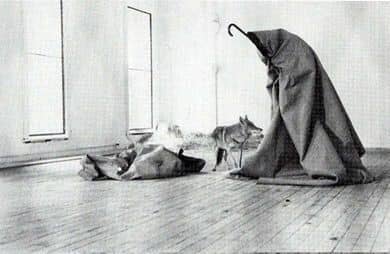I do think that large scale war is more possible than it has ever been in our lifetimes. There's a powder keg feel to much of it. Towering empires, armed and empowered.
This thing that many western nations have experienced—several generations of peace—is a luxury, maybe even a historical anomaly.
Neither you or I (as far as I know) have our hands on the levers of power or command armies with our decrees.
But we aren't powerless. And one of my biggest concerns is the hallowing out of care for our communities.
Of course it starts with our own hearts:
Are there particular people groups that I'd like to see "get what's coming to them"?
We know that marginalizing people based on race and ethnicity and class and nationality is bad. But what about those people whose religion we think is narrow and harmful? Whose beliefs are wacky? Or who support causes we find offensive?
Do we find ourselves justified in wanting them to suffer because of what they think or say or which political faction they support?
— that's a dangerous place to live.
As an American who pays attention to the historical record, I can see that since its founding, my country has been marked by compromise, national sin, and perpetration of injustice. But I can also see that there have been times—around the second world war, for instance—when we were a force for global good: pushing back waves of fascism. That was only possible because of a willful working together among the people.
And "together among the people" seems to be a great area of vulnerability—"a house divided cannot stand"—and also the opportunity space where each of us can influence our communities for the better.
My challenge to me: show kindness and love to someone whose beliefs I dislike.
Jun 17, 2025
Comments (1)
Make an account to reply.love this. disagreeing is good and reasonable, but wishing harm upon and creating further separation from our brothers and sisters is dangerous to everyone. as long as those in power have us fighting amongst ourselves, the people will never win.
Jun 17, 2025
Related Recs
🌱
“[In] the world we live in, it's easy to feel a sense of hopelessness, that everything is all bad all the time, that nothing is going to change ever, that people are evil and bad at the bottom. It feels sometimes that it's being proven in various different ways, so I really get that. I understand why people feel that way. I just choose differently. I choose to think a different way, and I choose to act in a different way. I choose to trust people until they prove themselves untrustworthy.
“Jim Wallace, who people know as a liberal Evangelical, who thinks about faith a lot and talks about faith a lot, he always talks about the fact that hope is really believing in spite of the evidence and watching the evidence change. And that, to me, makes total sense. I believe ultimately that we're going to win, because I believe there are more people who want justice, real justice, than there are those who are working against that.”
— Mariame Kaba
8h ago

Been thinking a lot of this Beuys piece and works from artists created during the span of the vietnam war and the civil rights movement. The optimism that if only there were enough dialogue created with their pieces, you could galvanize individuals to organize and together enact change.
I’m wondering if Beuys were alive today would he still hold onto that same sliver of hope?
(Joseph Beuys, I Like America and America Likes Me)
Jan 23, 2025
⛪
I’m very tangled in with the Christian faith due to my upbringing, but part of my deconstruction over the last decade has really driven me to dig into what this faith looks like historically, and especially in the eastern world where it was formed.
I think there’s a major blind spot in the current Christian leader landscape, especially when you apply a historical view of church leaders in Roman times vs. American times.
To be a church leader then, it was required that you’d have at least a basic grasp of current scientific advancements (compared to science-rejecting stereotypes today) + an understanding of world history (compared to a rejection today) + acceptance of astrological findings (“but the earth is flat!!!”) + a commitment to your spouse (how many more spiritual leaders committing affairs types of news can we handle) + common decency and kindness (……..not even touching this one).
I find that the studies that show that Christianity is declining yearly here in the US is fascinating because if, perhaps, the general consensus was to steer back into historical church history, and you filled leadership with kind men & women who loved their communities and didn’t fight science and know history and how to not repeat it then…MAYBE…the church as a whole would be seen as a safe haven once again. Tom Holland (secular historian) wrote a fascinating book called Dominion — his thesis was the the Christian faith was [historically] responsible for a large amount of early social justice reform + funding of communal help systems + supporting the science and arts. That has sadly died today, and we can see how it’s affected everything.
Sorry, just a long rant I needed to get out.
Aug 25, 2024
Top Recs from @mattshawsome
🛑
this is worthy of celebration: the lack of video—autoplay video, noisy inane video, panicky video, algorithmic, dumb video, rabbit hole video, any video—on pi.fyi is a good thing
Oct 5, 2024
🥾
this is going to hurt — A LOT — but it's getting to the point where there's no other option
Mar 11, 2025